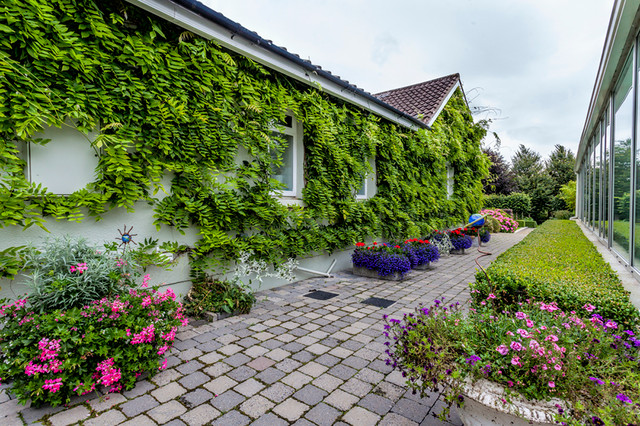As metropolitan populations keep growing and places expand, the importance of incorporating eco-friendly places into urban environments gets to be increasingly apparent. Garden houses emerge as being a eco friendly solution which not only boosts the standard of metropolitan life but additionally stimulates ecological resilience and community well-becoming. Let’s discover the primary part that garden House (zahradní domek) play in shaping lasting city development and creating enviromentally friendly, more livable metropolitan areas.
1. Eco-friendly System
garden House (zahradní domek) give rise to the creation of environmentally friendly infrastructure in downtown places, providing vital ecosystem solutions and mitigating the effects of urbanization. By incorporating plant life into home structures, these components help in reducing warmth tropical island results, improve air quality, and boost overall enviromentally friendly top quality. Environmentally friendly roofing, lifestyle wall surfaces, and top to bottom home gardens are just some of the functions that make garden houses crucial elements of environmentally friendly city scenery, developing environments for wild animals and advertising ecological connectivity amidst the urban sprawl.
2. Environment Strength
Inside the experience of climate change and excessive climate situations, garden houses offer a buffer against ecological threats and contribute to climate resilience. Environmentally friendly spaces act as organic stormwater administration methods, soaking up excess rainfall and reducing the danger of surging. In addition, the actual existence of plants assists regulate temperatures, decrease electricity usage, and provide shade, creating a lot more resilient areas capable of adapting to transforming climatic conditions.
3. Energetic Transport
Garden houses assistance eco friendly flexibility habits by advertising strolling, bicycling, and general public transit use. By clustering residential growth around natural spots and services, these communities promote energetic travel and reduce reliance upon automobiles. Additionally, garden houses often function walking-pleasant paths, bicycle lanes, and access to open public transit, making it simpler for inhabitants to travel sustainably and decreasing visitors over-crowding and air contamination in metropolitan areas.
4. Social Cohesion
Garden houses enjoy an important role in cultivating sociable cohesion and group engagement within city communities. These green enclaves supply inhabitants with possibilities for social discussion, adventure, and collective action, fortifying ties and encouraging a feeling of belonging. Whether through shared horticulture jobs, community occasions, or collaborative projects, garden houses serve as hubs of social exercise and joint assistance, enriching the fabric of urban existence and endorsing inclusive, tough communities.
5. Monetary Positive aspects
Above their ecological and societal positive aspects, garden houses also offer economic positive aspects for residents and towns likewise. Natural places boost house values, draw in expense, and increase the overall desirability of neighborhoods. In addition, garden houses decrease energy charges, drinking water consumption, and routine maintenance expenses, contributing to long-term savings for home owners and local authorities. By integrating environmentally friendly facilities into downtown development, garden houses contribute to economical progress, job development, and better total well being for people.
To conclude, garden houses represent a holistic procedure for lasting city improvement, where ecological, societal, and monetary factors converge to make radiant, strong residential areas. By adopting these natural living remedies, metropolitan areas can create places that prioritize the well-simply being of both men and women as well as the planet, ensuring a much more environmentally friendly and equitable potential for generations ahead.



